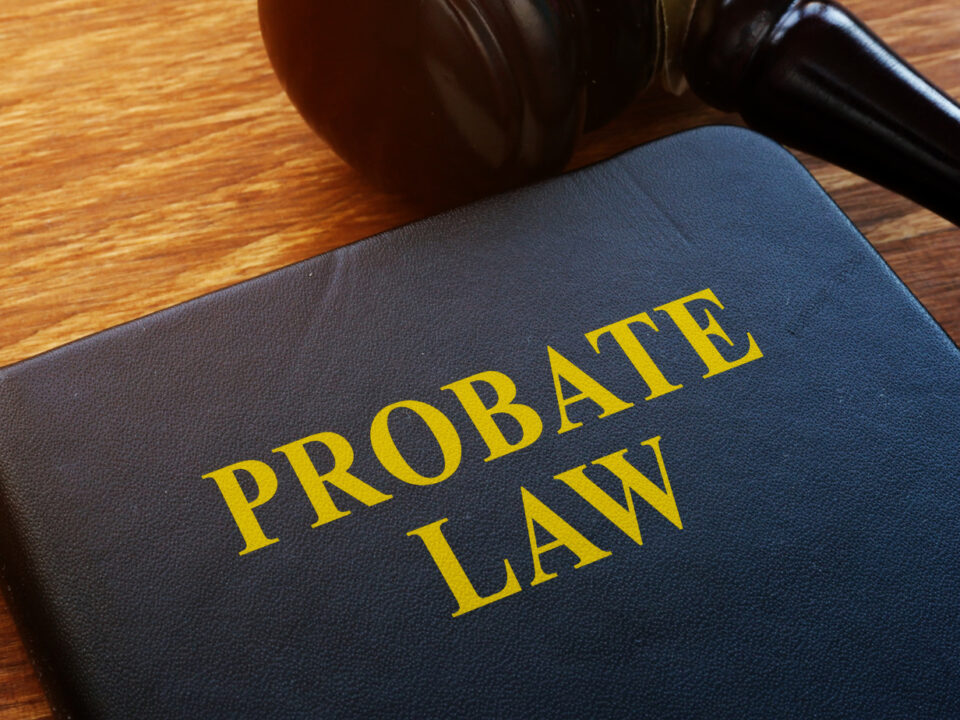- EXPERIENCED LAW FIRM IN TOLEDO, OH
- (419) 662-3100
What is a Breach of Fiduciary Duty?

How to Resolve Land Disputes in Ohio
September 21, 2020
Siblings Contesting a Trust… What You Need To Know
October 14, 2020
Explaining Breach of Fiduciary Duty
Fiduciary duty is a great responsibility and can be considered one of the most effective forms of trust a person or organization can place in another.
On occasion, situations arise in which that trust is broken. When that happens, it’s good to know you have options available to you.
What Is a Fiduciary?
A fiduciary is a person or persons entrusted to look after and manage the finances and best interests of another individual or organization, often referred to as the principal. People who fill this role can include estate executors, attorneys, trustees, board members, legal guardians, conservators, and others.
The basic tenet is that the fiduciary must put the other individual or organization’s interests before their own.
Fiduciaries have a specific obligation to fulfill. This can be a tremendous responsibility. Fiduciaries often have to make decisions that involve not only finances but also healthcare, management, and the safekeeping of valuable assets.
When Fiduciary Trust Is Broken
However, there are times when a fiduciary breaches the trust invested in them and prioritizes their own interests over the best interests of their principal.
Ideally, a fiduciary’s actions on behalf of their principal must not involve any conflicts of interest or self-dealing. The fiduciary can’t use the principal for their advantage, whether it be for personal gain, profit, or committing fraud.
The consequences of failing to fulfill a fiduciary duty can be severe. It is essential to seek legal advice when you suspect a breach of duty may have occurred.
Dealing With a Breach of Fiduciary Duty
When a trusted individual has been accused of breaching fiduciary duty, those affected by the breach can take legal action against the fiduciary.
While a civil lawsuit may seem like the first place to go, it’s not unreasonable to seek out the less expensive options of mediation or arbitration to resolve conflicts.
Mediation and Arbitration as a Solution To Fiduciary Breach
Voluntary mediation requires both parties, the fiduciary and the principal, to reach a consensus. This can be handled directly between the two parties, but often involves an independent third party to facilitate communication and maintain civility.
If contracts or other legal agreements are in place, then consensus may need to be established through arbitration. If signed contracts are involved, specifying an agreement to arbitrate disputes, suing will not be an option. All disagreements must be settled through arbitration.
Even when taking a dispute to court is an option, it may be smarter to submit to arbitration first. The court path can be time-consuming, expensive, and stressful. It also allows private disputes to become public, and you may wish to avoid all of that.
Should the situation involve a breach of fiduciary duty with a business partner, the adversarial nature of litigation may complicate the business relationship.
When a fiduciary breach occurs, mediation can often be the preferred avenue for resolution. That said, sometimes, going to court is the only option for justice to be served. Qualified legal representation can help shepherd you through the court process.
Proving Breach of Fiduciary Duty In Court
When a fiduciary breaches trust, those claiming that a breach occurred must prove that the fiduciary did not fulfill their obligations or may have acted more in their own interest than the principal’s.
Did the fiduciary act to enrich themselves at the expense of the parties to whom they had a duty? Did they mismanage assets or make a series of poor decisions affecting the principal? Were they negligent in carrying out their obligations?
All of these would be cases that could result in a claim of a breach of fiduciary duty.
In turn, the fiduciary can defend themself against accusations of a breach. Often, a fiduciary can claim protection under the business judgment rule, which holds that they cannot be held liable if things go wrong, provided certain conditions are met, such as the fiduciary exercising due diligence.
Should the fiduciary not successfully defend themself, and a breach has been established, there are different possible solutions. Usually, the fiduciary will be removed or replaced from their role. If the fiduciary breach results in financial loss, the fiduciary may be held accountable for those losses and may be ordered to pay compensation to the affected party or parties.
Acquiring Legal Advice
At Heban, Murphree & Lewandowski, LLC, our experienced attorneys will use their 100 years of collective legal experience to get you the results you deserve. We will thoroughly assess your situation and devise the best plan of action to handle your case.
From answering your general questions about fiduciary breaches to getting you started in the process, our committed attorneys are here for you. Contact us today!







